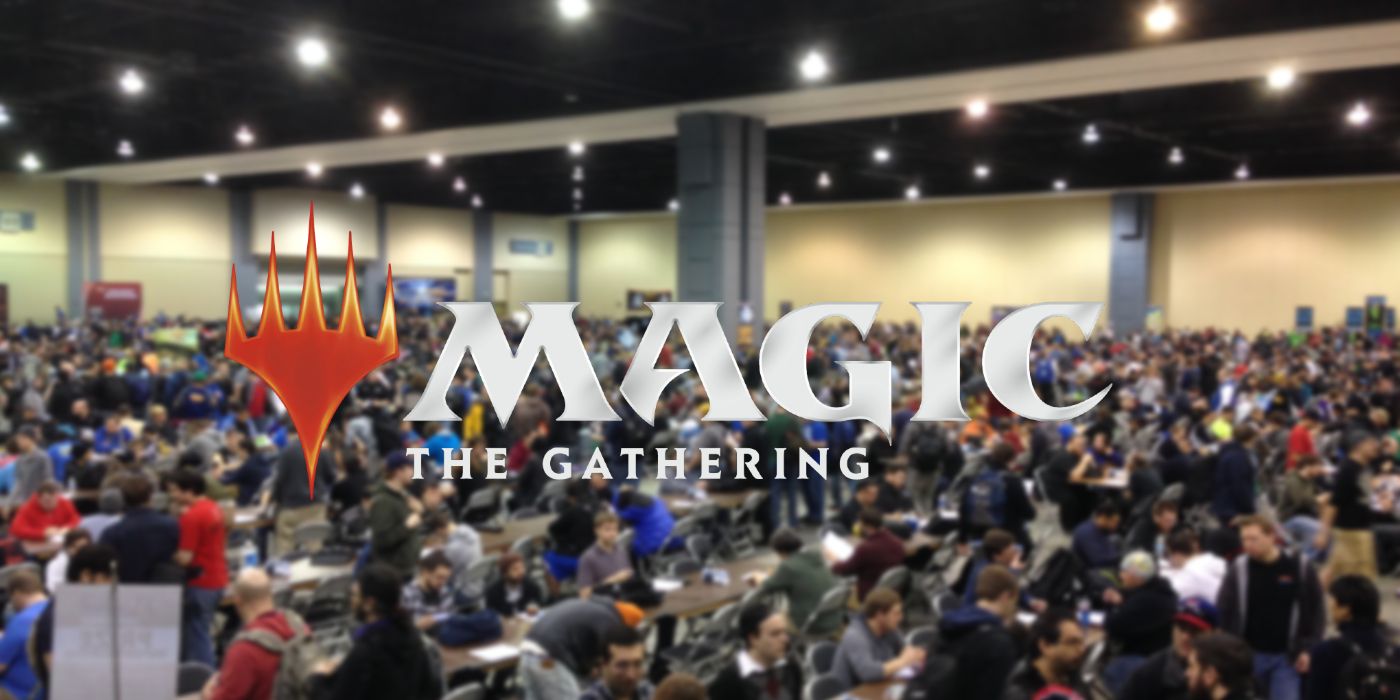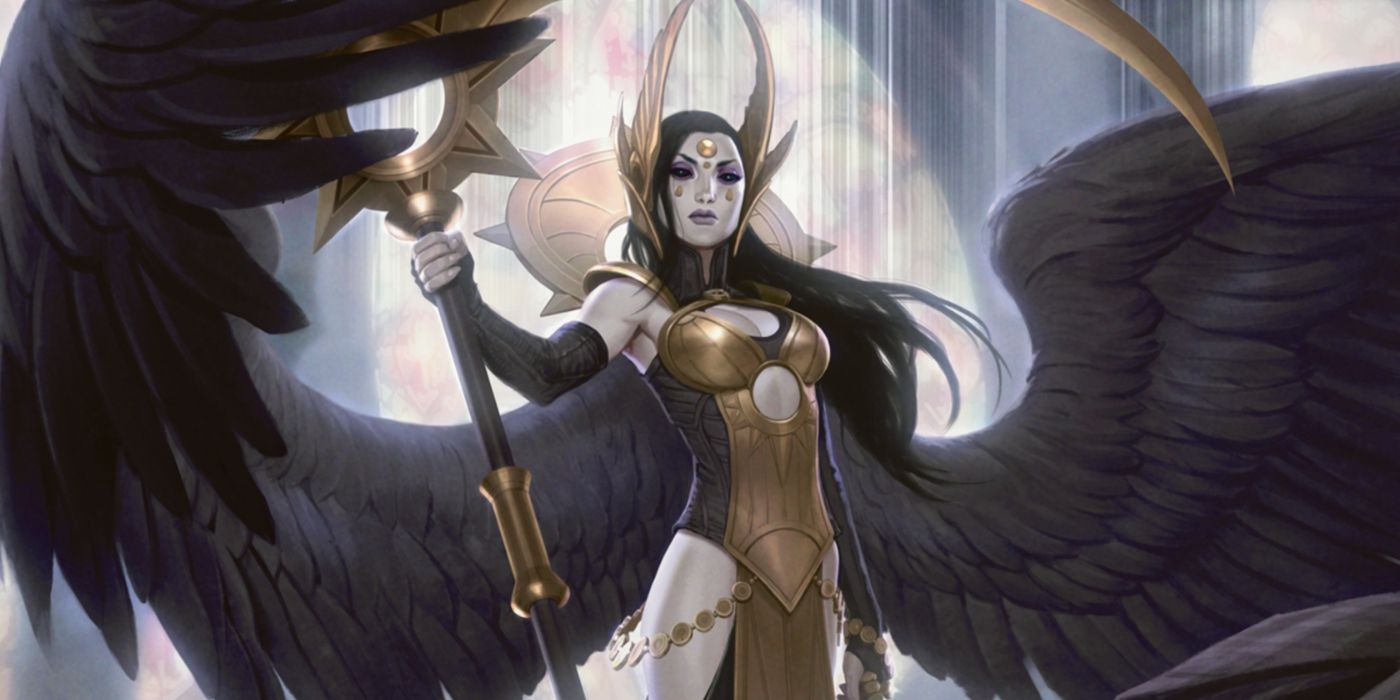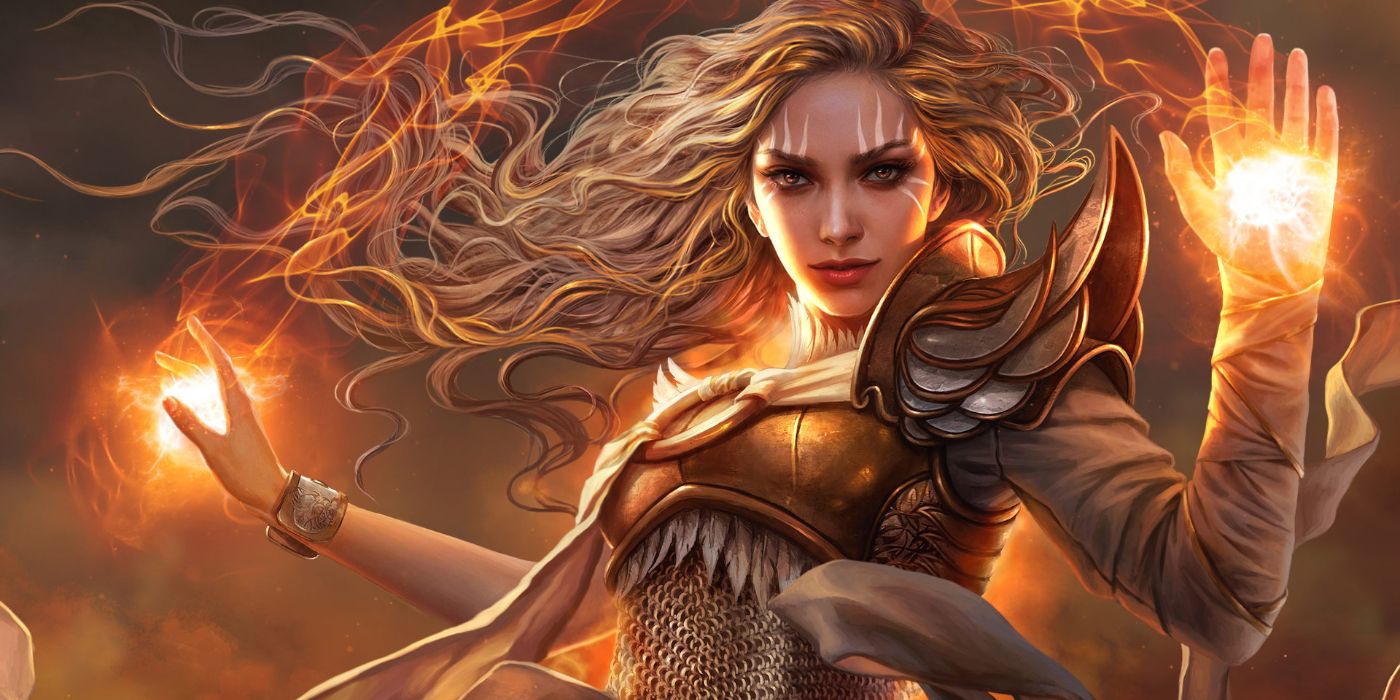Magic: The Gathering continues to enjoy another boom period thanks to Magic Arena, the wildly successful online counterpart to the tabletop game, but that hasn't stopped some fans from worrying over the fact that tournament attendance is beginning to plummet. MTG has been the home of a dedicated and passionate professional scene for decades, one that continues to thrive thanks to the big spotlight shone on it by events like the Mythic Championships, but just beneath that level of play, competitive organized play is beginning to fall apart at the seams.
As a caveat before diving in - MTG is not dying in any way. There's a renewed focus on the game due to the prevalence of Magic Arena and, with a new Standard set that will herald the return of a fairy tale-inspired aesthetic that hasn't been seen since Lorwyn block, old and new players alike have a lot to look forward to in the coming months. Magic Arena is played by millions of people and has continued to thrive as an outlet for Mythic Championship qualification and streamer content, while Magic: The Gathering Online is home to older formats that competitive players can still use to qualify for major events. Each platform has its own issues, certainly, but to say that they're not succeeding would be inaccurate - MTG is one of the hottest gaming properties in the world right now.
What's Going On With MTG Grand Prix?
That's why the drop-off in competitive tournament attendance is something of a concern, though. Many players will tell whoever is asking that they were inspired by seeing their favorite pros attend tournaments each weekend and pull off incredible plays or bring showy decks they simply had to try for themselves. Now, though, thanks to a massive reduction in event coverage and changes to the qualification process for Mythic Championships, players simply have less incentive to show up to events - and it shows. This past weekend, Grand Prix Denver had an attendance of 616 players. That made it the lowest attendance for a Grand Prix in the United States since 2006 - a period of time where MTG was far less prevalent in popular culture and enjoyed a significantly smaller playerbase.
To cap things off, Grand Prix Denver was also won by Luis Scott-Vargas, aka LSV, one of the most popular figures in the MTG community. Unfortunately, no one saw it happen - there was no coverage for the weekend event, which was instead covered by guerrilla reporters who simply played, were knocked out, and then watched the tournament as it progressed and live-tweeted results. LSV won with an exciting new deck that ticked a lot of boxes for viewership interest, too, just to make sure that the example of why coverage is important was really hammered home.
MTG Tournament Numbers
It isn't just Denver, either. Detroit, which hosted a Grand Prix just a week prior, just barely brought in over 700 people. Denver in 2018 brought in 1518 people, while Detroit in 2018 housed 1596. These are steep drop-offs in player numbers for a game that's currently experiencing a renaissance in both overall interest and in the quality of its sets - the Standard format, which experienced a lengthy period of stagnancy as a result of poor card design, has rebounded over the past year to a level of consistent greatness that the game hasn't enjoyed for some time.
Clearly, physical tournament attendance has become less of a concern for Wizards of the Coast, which has certainly made it a point to prioritize digital play on Arena. There's every reason the company should focus on that platform, too, as it's relatively new, exciting, and offers a level of access that tabletop MTG could never achieve. With that said, though, it's clear that whatever amount of resources currently being put into paper Magic are simply not enough. MTG recently made Grand Prix tournaments a lot less important to professional players as they no longer award pro points or access to the Pro Players' Club, which would grant members qualifications to Pro Tours (now Mythic Championships) based on accumulated point totals. Now, just the top records at a Grand Prix qualify for the next Mythic Championship, making them extremely unfavorable odds for anyone hoping to make it that way.
MTG Organized Play Focus
It's definitely worth mentioning, however, that many of these tournaments have reportedly had very lively side events. These represent smaller tournaments or events being run concurrently with the main Grand Prix that more casual players looking for less of a time commitment can join. If that's the case, perhaps it's time to start viewing Magic: The Gathering Grand Prix weekends - or MagicFests, as they're referred to by Wizards of the Coast - as much more of a Magic convention than a major tournament. It's also true that the competitive community is a very minor part of the population in MTG, as there are many more players interested in formats like Commander or simply playing games at their local stores than attending tournaments with high-stakes qualifications on the line. For competitive players, the StarCity Games tournament circuit has begun to pick up steam as the de facto best scene available to those who want to continue pursuing professional-level play.
Essentially, it boils down to this - tournament attendance in MTG is down significantly in the United States despite the buzz surrounding the game. For a game that's making a ton of money and frequently hosts tournaments with high-stakes prize pools, the stakes have never been lower for its organized play as a whole. Hopefully, dwindling attendance numbers will see Wizards of the Coast and tournament organizers ChannelFireball re-examine what needs to be done for the professional scene. It's absolutely fine that Magic: The Gathering continues to grow and head into new directions, but forgetting a huge sub-section of the community - the tournament grinders, the aspiring pros, and the Pro Players Club members who advertised the game with every event they traveled to - doesn't need to happen as a result, even if they're being prioritized less by the game.



